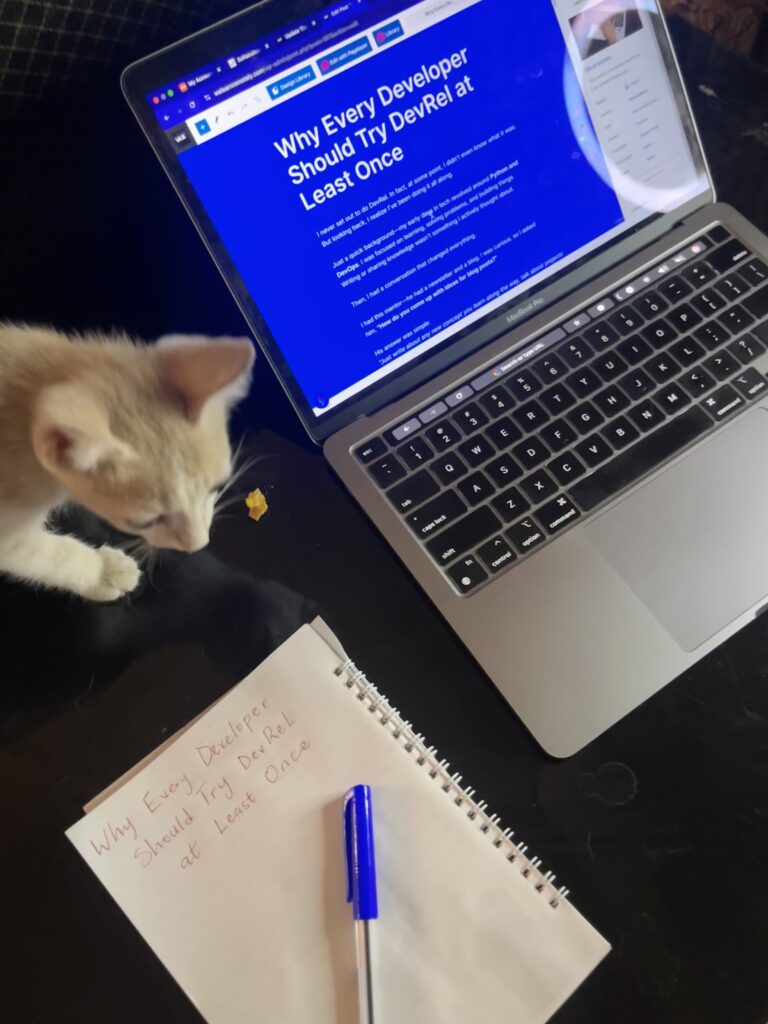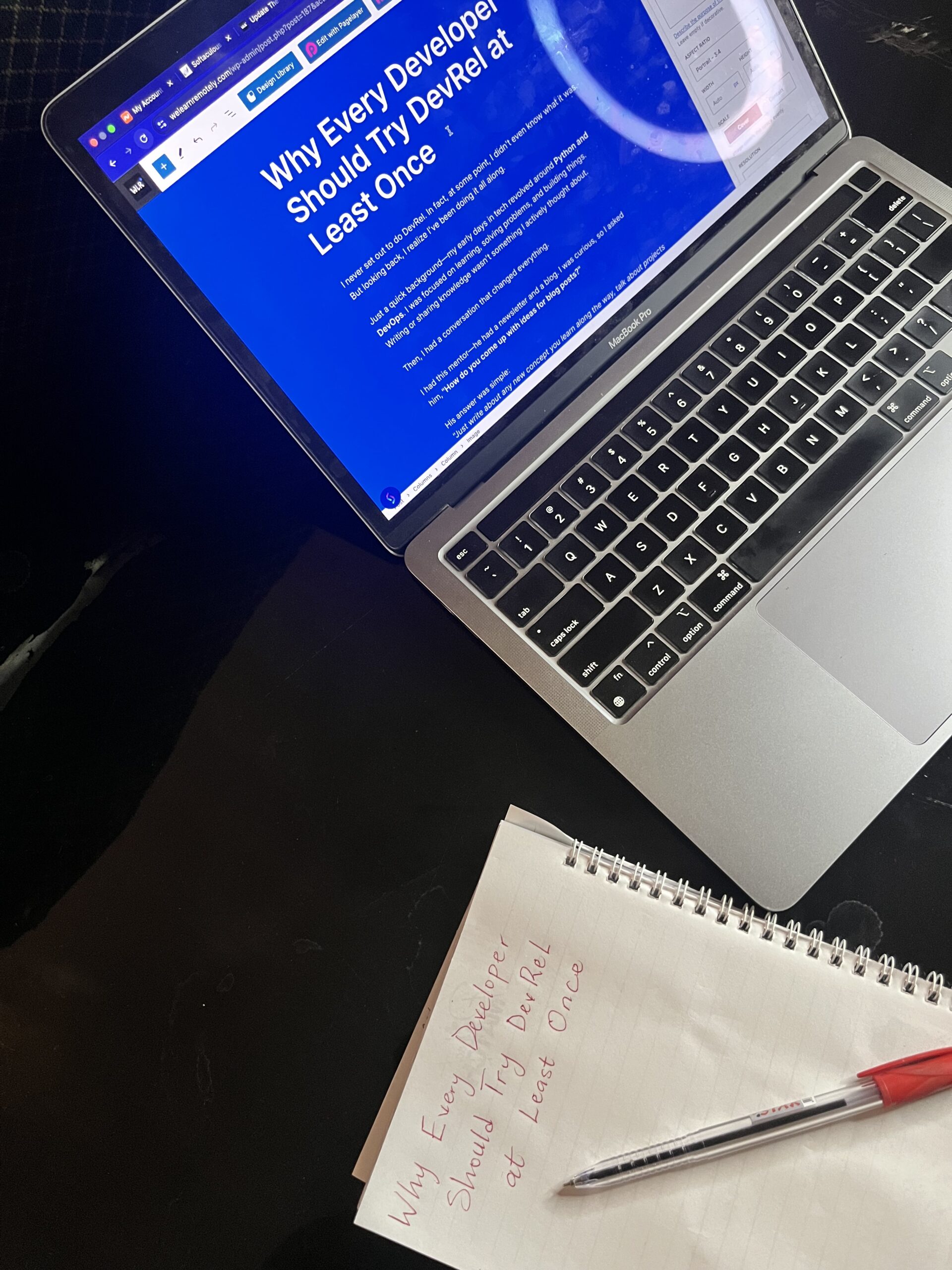I never set out to do DevRel. In fact, at some point, I didn’t even know what it was. But looking back, I realize I’ve been doing it all along.
Just a quick background—my early days in tech revolved around Python and DevOps. I was focused on learning, solving problems, and building things. Writing or sharing knowledge wasn’t something I actively thought about.
Then, I had a conversation that changed everything.
I had this mentor—he had a newsletter and a blog. I was curious, so I asked him, “How do you come up with ideas for blog posts?”
His answer was simple:
“Just write about any new concept you learn along the way, talk about projects you’ve worked on, or write about something that fascinates you.”
That advice stuck with me.
At first, I wrote to make sure what I learned actually stuck and I could have something like a note, I can come back to in the future.
Then, I wrote to rant—about why something made sense (or didn’t).
Before I knew it, I was sharing insights, engaging in discussions, and helping other developers make sense of things.
Unknowingly, I had stepped into Developer Relations.
The “Aha!” Moment: How I Accidentally Discovered DevRel
I didn’t realize it at the time, but what I was doing was exactly what DevRel professionals do:
– Explaining technical concepts in a way others could understand
– Writing content that helped developers navigate new tools and ideas
– Engaging in discussions and sharing insights within developer communities
My motivation wasn’t to build a brand or gain followers. I was just documenting my journey, not until I was acknowledged by dev.to, and I got comments from other developers, and randomly in a community, a question about bash or Kubernetes, or Terraform, or just a beginner trying to grasp the concept of serverless, and I will just reference my blog post.
That’s when it clicked: DevRel isn’t just a job—it’s a way to amplify your impact as a developer.


What People Get Wrong About DevRel
Despite its growing popularity, DevRel is still misunderstood. Here are some of the biggest misconceptions:
- “DevRel is just marketing.”
Wrong. DevRel isn’t about pushing a product—it’s about making sure developers can actually use it effectively. It’s about education, enablement, and advocacy. - “You need to be an extrovert.”
Not at all. Many DevRel professionals are introverts who prefer writing technical blogs, creating documentation, or contributing to open source rather than speaking on stage. - “DevRel is for people who don’t want to code.
Absolutely false. Many DevRel roles require strong technical skills to create meaningful content, tutorials, and developer tools. It’s not an escape from coding—it’s a way to use coding to teach and empower others.
Why Every Developer Should Try DevRel at Least Once
Even if you don’t want a full-time career in DevRel, trying it will make you a better developer in ways you wouldn’t expect:
- You learn to communicate complex ideas.
Breaking down concepts for others improves your own understanding.
You write better documentation, explain code better, and become a better engineer.
- You build a personal brand.
Writing, speaking, and sharing insights makes you stand out in your field. Opportunities come to those who share what they know.
- You gain leadership skills.
Teaching others positions you as an authority in your domain. You build relationships with other devs and become a trusted resource.
- You future-proof your career.
AI can generate code, but human connection, storytelling, and education will always be valuable. DevRel skills—communication, advocacy, and community-building—will never go out of demand.
Conclusion: Why I’m Sticking With DevRel
Looking back, I realize DevRel wasn’t something I decided to do—it was something I naturally grew into.
I didn’t start writing because I wanted to become a Developer Advocate.
I wrote because I wanted to document, explore, and help others.
And that’s why I believe every developer should try DevRel at least once.
You might already be doing it without realizing it. You might discover it’s something you love. Or at the very least, you’ll walk away a better developer.
So go ahead—write that blog post, answer that question, or explain that concept. You never know where it might take you.
P.S.: Over time, I’ve come to see writing as a chore on most days. I only write when something excites me so much that I can’t wait to share it—an experience that shifted my perspective, a product that blew my mind, a challenge that took me days to crack, or a discovery that makes life easier for others.
